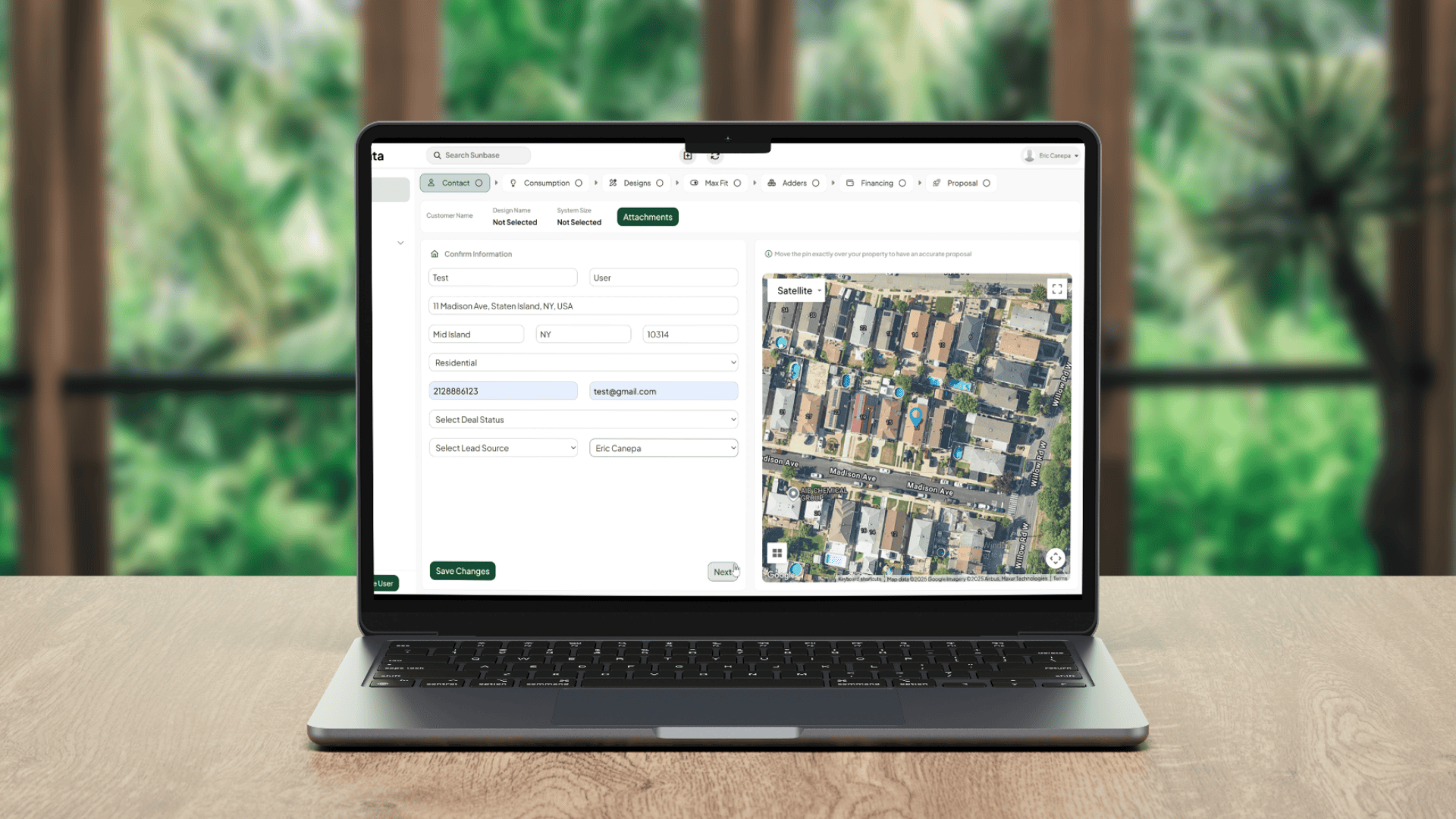August 8, 2022
What CRM is and what does it stand for?
CRM stands for Customer Relationship Management. CRM software is used to help businesses manage their customer relationships more effectively. CRM software can help businesses keep track of customer contact information, sales history, and preferences.
It can also help businesses manage their customer service and support operations. Ultimately, CRM software can help businesses improve their relationships with their customers, which can lead to improved customer satisfaction and loyalty.
Types of CRM software
There are many different types of CRM software on the market today that your sales team can use.
In order to find the best one for your business, it is important to understand the different features and options each type offers. We have made a list of types of CRM down below, however, if you need more information related to the types of CRM software you should read our Blog post on the same.
Enterprise CRM
The most popular type of CRM software is enterprise CRM. This software is designed for larger businesses that need to track and manage a large number of customer relationships. Enterprise CRM software typically includes features such as sales force automation, customer service and support, marketing automation, and analytics.
Small business CRM
Another type of CRM software is small business CRM. This software is designed for smaller businesses that need to track and manage a smaller number of customer relationships.
Small business CRM software typically includes features such as contact management, opportunity management, and basic reporting.
We have an article specifically on the Benefits of CRM for small businesses you can read about it on this page.
Choosing the right CRM software for your business is an important decision. Be sure to consider all of your options before making a final decision.
How CRM can benefit your business
If you're like most business owners, you're always looking for ways to improve your bottom line. One way to do this is to invest in customer relationship management (CRM) software. CRM can benefit your business in several ways, including improving customer satisfaction, retaining customers, and reducing costs.
Improved customer satisfaction
This is perhaps the most important benefit of CRM. When you have a good CRM system in place, your staff can easily track customer interactions and address any problems that may arise. This means that your customers will be more satisfied with your products or services, which can lead to repeat business and referrals.
Retain Customers
Another big benefit of CRM is that it can help you retain customers and gain customer loyalty. It's much easier (and cheaper) to keep existing customers than it is to acquire new ones. By tracking customer data and using it to improve the customer experience, you can keep your customers coming back for more.
Reduce Costs
Finally, CRM can help you reduce costs. A good CRM system can automate many of the tasks that are traditionally done manually, such as follow-up calls, appointment scheduling, and marketing campaigns. This can free up your employees' time so they can focus on other tasks, and it can save you money on things like postage and paper.
Investing in a good CRM system is a wise decision for any business owner who wants to improve customer satisfaction, retain customers, and reduce costs. When used correctly, CRM can be a powerful tool for growing your business.
How to choose the right CRM for your business
There is no one-size-fits-all answer when it comes to choosing a CRM system for your business. The best CRM system for your company will be the one that fits your specific business needs the best. To help you choose the right CRM system for your business, here are a few things to consider:
What are your specific business needs?
The first step in choosing a CRM system is to identify your specific business needs. What do you need a CRM system for? Do you need it to manage customer data? Do you need it to automate marketing or sales processes? Once you know what you need a CRM system for, you can start looking for one that offers the features and functionality you need.
What is your budget?
Another important factor to consider when choosing a CRM system is your budget. CRM systems can range in price from a few hundred dollars to several thousand dollars. It’s important to find one that fits within your budget so you don’t overspend on features you don’t need.
What features are most important to you?
Once you know what you need a CRM system for and how much you’re willing to spend, the next step is to identify the features that are most important to you. Do you need a system that offers mobile access? Do you need one with integrations to other business software? Make a list of the features you need so you can narrow down your options.
What are your long-term goals?
Finally, it’s important to consider your long-term goals when choosing a CRM system. What do you hope to achieve with a CRM system? Do you want to increase sales? Improve customer satisfaction? Once you know your goals, you can find a CRM system that offers the features and functionality you need to achieve them.
CRM systems can offer a wide range of benefits for businesses of all sizes. By taking the time to consider your specific needs, budget, and goals, you can find the right CRM system for your business.
If you want to know the best CRM systems right away, click on this link and read our List of Top 13 CRM software for 2022.
Implementing CRM into your business
Now that you’ve chosen the right CRM solution for your business, it’s time to implement it. Implementing a CRM system can be a big undertaking, but there are a few things you can do to make the process easier.
Define your goals.
Before you start implementing your CRM system, take some time to define your goals. What do you want to achieve with a CRM system? Do you want to increase sales? Improve customer satisfaction? Manage your marketing teams? Once you know your goals, you can develop a plan for how to best use your CRM system to achieve them.
Train your employees.
Once you have a plan in place, it’s important to train your employees on how to use the CRM system. The more comfortable they are with the system, the more likely they are to use it. Make sure you provide training on all the features of the system so your employees can get the most out of it.
Monitor and adjust.
After you’ve implemented your CRM system, it’s important to monitor its performance and make adjustments as needed. pay attention to how your employees are using the system and whether or not it’s helping you achieve your goals. If you find that something isn’t working, don’t be afraid to make changes.
A CRM system can offer a wide range of benefits for businesses of all sizes. By taking the time to choose the right system and implement it correctly, you can maximize its benefits.
What are the benefits of CRM?
There are many benefits of customer relationship management (CRM) systems.
Efficiency and Effectiveness
By automating the sales process and tracking customer interactions, businesses can improve efficiency and effectiveness.
Better Understanding of Business
CRM systems can also help businesses to better understand their customers, identify spending patterns, and target marketing efforts. As the CRM systems store customer data, they help in identifying the above indicators of your business.
Additionally, CRM systems can boost sales productivity by providing employees with quick access to customer information. Ultimately, CRM systems help businesses to improve customer satisfaction and grow revenue.
Improved Customer Service
By tracking customer interactions and providing employees with quick access to customer information, CRM systems can help businesses to improve customer service. By understanding customer needs and preferences, businesses can provide a more personalized experience that leads to improved customer satisfaction. Additionally, CRM systems can help businesses to resolve issues quickly and efficiently.
Increased Sales and Revenue
CRM systems can also help businesses to increase sales and grow revenue. By automating the sales process and tracking customer interactions, businesses can identify upselling and cross-selling opportunities.
Additionally, by understanding customer needs and preferences, businesses can target marketing efforts more effectively, leading to increased sales. Ultimately, CRM systems help businesses to improve efficiency, effectiveness, and profitability.
Sunbase CRM
We think having a CRM platform is important for your Solar companies as well, so if you wish to check out CRM solutions for your company, Visit Sunbase today.
What we offer-
- Integrated Web Forms
- Lead Generation Tools
- Opt-In Auto-Responder
- Lead Auto-Assigning
- SMS/Email Notifications
- Utility Bill Requester
- Upload Photos/Attachments
- Automated Follow-Up
- Remote Data Collection
Conclusion
CRM solutions are a valuable business tool that can provide a number of advantages for companies. If you’re not currently using a Customer Relationship Management system, we encourage you to contact us today and see how our team can help get your business on the right track.
With the ever-growing competition in the business world, it’s more important than ever to make sure your company is utilizing all the tools available to stay ahead of the curve for customer retention. Thanks for reading!
About Sunbase
Sunbase helps solar companies succeed through a suite of Solar CRM tools like Solar Lead Management Software, Solar Proposal Software, etc.! To book your free demo or an appointment, contact us here.
One Platform. Zero Chaos. Run Your Entire Business in One Place.
Sunbase replaces your CRM, proposals, scheduling, job tracking, and reporting tools — all inside one clean, connected platform.
About Sunbase
The All-In-One Platform to Run Your Entire Business
Sunbase helps you organize operations, streamline daily workflows, and manage everything - from first customer contact to final project deliver- in one connected system.
Our Mission
- Organize your business.
- Optimize your workflow.
- Automate what slows you down.
Why Businesses Choose Sunbase
One Connected Workflow
Replace scattered tools and manual processes with a single platform that brings together your team, tasks, customers, jobs, and performance data.
🌎 Global Presence
Serving the United States, Canada, India, LATAM, Australia, and 10+ international markets.
👥 11,000+ Users
Trusted by contractors, installers, project managers, sales teams, and field technicians.
🏗️ Built for All Sizes
From small contracting teams to fast-growing enterprises, Sunbase adapts to your workflow.
Useful Links For You
Stop Managing Your Business Manually. Automate It.
Sunbase automates workflows, reduces mistakes, and helps your team get more done - without hiring extra staff or juggling multiple tools.











